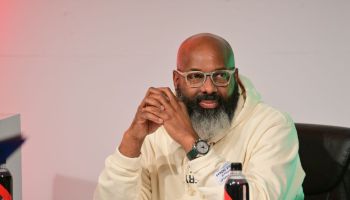In a city built on faith and finance, there’s an unaddressed tension between the two.
Charlotte, the country’s second-largest banking center, is also a city where top bank executives teach Sunday school, serve as deacons and mention church at employee rallies. It’s the kind of place where Hugh McColl Jr. says he got inspired to buy BankAmerica, a decision that created Bank of America Corp., while singing a hymn at the early service.
And yet there’s rarely a public conversation about what is ethically right and wrong in the banking industry, and how that contributed to the financial meltdown still roiling national economies. Although bankers acknowledge that “mistakes” were made or there were “cognitive failures,” they are often loath to dwell on their industry’s ethical breaches.
It’s an uncomfortable conversation but a necessary one, many believe. Without it, they say, we will only find ourselves in another financial crisis.
Richard Boyce, the mayor of Belmont, N.C., and a Presbyterian minister who teaches seminary students in Charlotte, said he’s concerned that the city’s bankers haven’t clearly addressed the issues of right and wrong in their industry.
“We’ve all benefited from the success of the banks in Charlotte,” he said. “It’s not like any of our hands are clean. … What frustrates me is here in this banking center, we don’t seem to be talking to one another much about how we decide what is proper and improper in terms of banking practices today.”
Although the industry faces sweeping new rules and regulations, legality is not the same thing as morality. In some corridors of banking, people turned a blind eye to troubling practices as long as they were technically legal, or rationalized away their qualms by telling themselves that it was just the way business was done. There was a fragmented code of ethics in some corners, current and former bankers say, where behaviors that people wouldn’t tolerate in their personal lives were considered acceptable as long as they were confined to business.
McClatchy Newspapers broached the topic of banking and ethics with more than 50 people, almost all of them bankers or former bankers. Only 10 of the bankers agreed to be interviewed on the record. Some said they would speak only under anonymity because they feared retaliation from their employers. Others said they didn’t want to talk because they disagreed with the idea that there had been ethical lapses in banking.
Before the financial crisis came to full force in 2008, shifts in the industry and society set the stage for temptation.
The 1999 repeal of the Glass-Steagall Act broke down the walls between retail and investment banking, allowing banks that take consumers’ deposits to also engage in risky Wall Street-style gambles. At the same time, the government was aggressively promoting home ownership. And in 2004, regulators bowed to industry pressure to loosen rules about the reserves that investment banks had to hold, allowing them to take on more risk.
In response, bankers issued mortgages to people who couldn’t prove their income, making more money as they made more loans. The banks repackaged home loans into investment products and sold them off to pension funds and other investors, giving them less incentive to worry about whether the loans were good or bad.
The banking industry became a big profit center in itself, not just a tool for moving money through the economy. The rewards got too big, too fast and too seductive, many industry insiders agree.
The banks’ compensation structures made it difficult for employees to speak up if they saw anything that made them uneasy, current and former bankers said.
Bonuses were rewarded partly on team performance, so people were disinclined to object to questionable practices. Banks emphasized teamwork to the extreme, so people who spoke up could be seen as disloyal. The units that churned out the most revenue held the most sway with executives and other decision-makers.
“To throw a flag in the sand and say, ‘I’m not sure about this’ – you’re not having a philosophical discussion with your priest. You’re saying to the guy in the next cubicle, ‘I’m not sure you should be making as much money as you’re making,’ ” said William Atwood, executive director of the Illinois State Board of Investment, an investor in major banks.
Maryann Bruce, the former president of Wachovia’s Evergreen Investment Services, said the banks are often dominated by a message from the top of “Do as I say.”
“There’s a culture of groupthink. There’s a culture of ‘Don’t speak out unless you have a few other people who agree with your opinion,’ ” she said. “You always like to believe that people have integrity, but it takes courage.”
Bruce left Wachovia in 2007, the same year the bank paid more than $32 million to settle federal allegations that it had mishandled an Evergreen mutual fund, allowing questionable “market timing” trading at the expense of investors. Regulators also found that Bruce had banned such trading in 2000, though another executive went behind her back to do it.
One of the major problems in the banks, Bruce and others said, is that executives were terrified by the thought of their company falling off the list of top banks. Like their peers at most publicly traded companies, they were under extreme pressure to raise earnings each quarter, and a “keeping up with the Joneses” obsession drove them to make questionable decisions.
“We had people who were determined to be the biggest, not the best, and they surrounded themselves with people just like them,” said Bruce, citing Wachovia’s 2006 purchase of Golden West Financial as one such regrettable decision. Golden West, a California lender that made unconventional mortgage loans, propelled Wachovia into a major player in the mortgage scene, but it also played a big part in the bank’s near-collapse two years later.
John Owens, CEO of Charlotte-based Ameritrust, which used to make both prime and higher-rate mortgage loans through independent brokers, said he had reservations about some of the mortgage products touted to him by New York traders beginning around 2003. He used some of them anyway because he didn’t want to lose market share.
“We had to make a choice. If we don’t do it, somebody else will,” said Owens, who is now selling prime mortgages and other products directly to consumers.
He said he lost millions, but he doesn’t believe that the traders, or anyone else, had any ill intentions.
“I don’t think ethically anything went wrong,” Owens said. “We were just relying on people who we thought were the smartest people in the room.”
John Allison, the retired CEO of BB&T, said his bank faced the same pressure to offer negative-amortization mortgages several years ago. Those mortgages let borrowers pay less than the interest owed every month and can lead to them owing more over time, not less. Allison said he was criticized for not offering the loans because the banks that did were booking big fees every time they sold one, but he thought those loans would end up hurting his customers – which would only end up hurting him too, he said.











